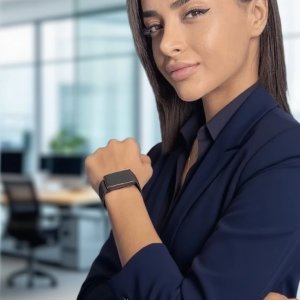The future of education is rapidly changing around the world, and the UAE is at the forefront of this transformation. With a strong commitment to shaping the minds of the next generation, the country is embracing innovative teaching methods, cutting-edge technology, and modernized curricula. The goal is to prepare students for a world where digital skills, creativity, and problem-solving are essential. This article looks at the exciting changes happening in UAE classrooms and how these innovations are helping students build a brighter future.
A Vision for the Future of Education

The UAE has always placed a high value on education. However, in recent years, the government has launched several initiatives to make its education system more progressive, inclusive, and future-focused. The UAE Vision 2021 and the National Strategy for Innovation highlight the importance of education in the country’s long-term goals.
Under this vision, the UAE aims to provide world-class education by integrating advanced technology into classrooms, fostering a creative learning environment, and preparing students for the challenges of tomorrow’s job market. To achieve these goals, the UAE has introduced several innovations in schools, universities, and other educational institutions.

The Role of Technology in UAE Classrooms
One of the biggest changes in UAE classrooms is the integration of technology. Gone are the days when students only used textbooks and notebooks. Now, technology is a central part of the learning experience. Classrooms are equipped with interactive whiteboards, smart projectors, and tablets for every student, making learning more engaging and interactive.
Virtual Reality (VR) and Augmented Reality (AR) are becoming increasingly common tools in the classroom. These technologies allow students to immerse themselves in virtual environments, offering new ways to explore subjects like science, history, and geography. For example, instead of reading about the solar system, students can use VR headsets to take a tour of space, exploring planets and stars up close.

These tools also help improve critical thinking and problem-solving skills. In a math class, students can use apps to visualize and manipulate equations, making abstract concepts easier to understand. In science, virtual labs allow students to conduct experiments without needing access to a physical lab, promoting hands-on learning and scientific inquiry.
E-Learning and Online Education Platforms
E-learning has gained significant traction in the UAE, especially with the rise of the COVID-19 pandemic. However, even after schools returned to physical classrooms, the benefits of online education became clear. Blended learning – a mix of in-person and online education – is now a regular feature in many schools across the country.
Students can access online resources, educational videos, and interactive modules from home, complementing their classroom lessons. These platforms also allow for personalized learning, where students can progress at their own pace. For example, if a student struggles with a particular subject, they can revisit lessons and practice more before moving forward.
The UAE has embraced learning management systems (LMS) like Google Classroom, Moodle, and Microsoft Teams, which help both teachers and students stay connected and organized. Teachers can share materials, assign homework, and even hold virtual classes, ensuring that students have access to continuous learning, no matter where they are.
Smart Classrooms: The Future of Learning
Many schools in the UAE are now adopting the concept of smart classrooms, which are equipped with technology to make teaching more effective and efficient. These classrooms are designed to promote collaborative learning and enhance the student experience.
Smart classrooms often include interactive touchscreens that allow teachers to display content, engage with students, and incorporate multimedia like videos, quizzes, and live discussions. These tools help students absorb information in different ways, making lessons more dynamic and exciting.
Some schools are also using artificial intelligence (AI) in the classroom. AI can analyze students’ progress and provide real-time feedback, enabling teachers to tailor their lessons to meet the individual needs of each student. For example, AI can identify when a student is struggling with a concept and recommend additional resources to help them understand better.
Fostering Creativity Through Project-Based Learning
Another significant shift in the UAE’s education system is the move towards project-based learning (PBL). In this model, students work on real-world projects that require critical thinking, collaboration, and problem-solving. This approach encourages students to apply what they’ve learned in the classroom to real-life situations.
In a PBL classroom, students might work together to design a sustainable city, create a business plan, or research a global issue. These types of projects not only teach students how to work together but also develop important skills such as leadership, communication, and time management.
PBL also encourages students to think creatively and approach problems from multiple angles. In the UAE, schools are using project-based learning to prepare students for the future workforce, where innovation, adaptability, and teamwork will be essential skills.
Encouraging STEM Education
In recent years, the UAE has placed a strong emphasis on STEM (Science, Technology, Engineering, and Mathematics) education, which is critical for preparing students for careers in the tech and engineering fields. The government has invested heavily in creating programs that encourage STEM learning from an early age.
Robotics, coding, and 3D printing are now being taught in many UAE schools, providing students with hands-on experience in cutting-edge technologies. Students can participate in coding competitions and robotics challenges, fostering a spirit of innovation and technological curiosity.
This focus on STEM is not only limited to high schools; universities in the UAE are also playing a key role in promoting research and development (R&D) in technology and engineering fields. By fostering scientific research and innovation, the UAE hopes to create a generation of leaders and professionals who can contribute to solving global challenges.
Preparing Students for Global Citizenship
In addition to technological skills, the UAE is also focused on promoting global citizenship among students. The government is encouraging multicultural education and providing opportunities for students to learn about different cultures, values, and traditions.
Students in the UAE are taught to be open-minded, empathetic, and socially responsible. They are encouraged to think globally and contribute to solving issues like climate change, poverty, and inequality. The UAE’s commitment to promoting international education has led to the establishment of several international schools and exchange programs that connect students with peers around the world.
Challenges and the Road Ahead
While the UAE has made impressive strides in modernizing its education system, there are still challenges to overcome. Access to technology remains a barrier in some areas, particularly for students in rural or less developed regions. Ensuring that all students have access to the same level of technology and learning opportunities will be essential to achieving education equity.
Moreover, as technology continues to advance, teachers will need ongoing training to stay up-to-date with the latest tools and teaching methods. Professional development for educators will be crucial to the success of these innovations in the classroom.
Conclusion
The UAE’s commitment to innovation in education is transforming classrooms across the country. By integrating technology, encouraging creativity, and fostering global citizenship, the UAE is preparing students for a future filled with endless possibilities. As the world continues to change, the UAE’s education system will evolve alongside it, ensuring that future generations are equipped with the skills, knowledge, and values they need to succeed in an ever-changing world.
Also read: Dubai’s Ambitious Blockchain Vision: A Future of Digital Transformation












